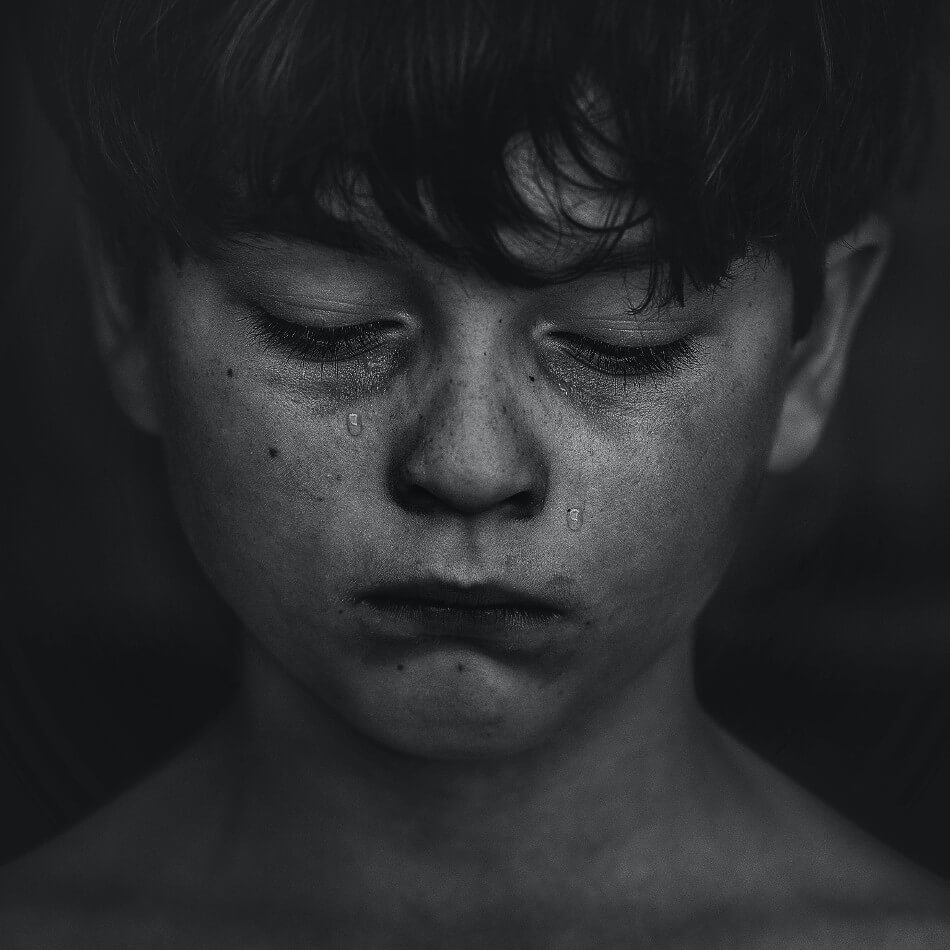Growing up in a household where one or both parents suffered some form of substance addiction not only breeds chaos in the moment but can have a lifelong impact on the children involved once they reach adulthood.
Children whose parents suffered from alcoholism tend to develop in different ways compared to those whose parents were not alcoholics.
This article addresses some of the critical distinctions and personality traits of those who grew up in a household where substance abuse was rife.
Adult children of alcoholics
Adult children of alcoholic parents (ACOAs) tend to share common traits and personality styles.
Growing up in a home where alcohol and substance abuse was an everyday occurrence – these children learn quickly that their needs come second to their parents’ addiction, and often adopt survival strategies to help them cope through their environment.
Unfortunately, these coping strategies often stay with them through to adulthood and can impact their self-perception and relationships with others significantly.
Alcoholism is a family disease that comes with dire consequences for every member of the family unit.
A typical alcoholic household tends to be:
- Chaotic
- Erratic and dysfunctional
- Void of necessities like food and home comforts
- Scary (particularly for the children who live there)
- Fueled by the possibility of domestic violence between parents
- Isolating
- Abusive
Kids of alcoholics do not operate on the surface level of things; meaning that even though they may behave like the rest of their peers, they are far from carefree like most children.
Their behaviour is not always synonymous with how they are feeling either.
For instance, one child might be playing with his or her toys happy and without worry, while the other gets plagued by responsibility and anxiety fueled by their parents’ addiction.
Personality traits of adult children of alcoholics

It’s an unfortunate fact that over 7% of the UK population suffer some form of alcohol use disorder.
Other research shows that roughly six people die of alcohol poisoning every day – leaving a large number of young children either orphaned or without a parent.
Children tend to be the invisible sufferers of alcoholism and the impact this can have on their early development often shows once they reach adulthood.
Tony A., who is also an adult child of alcoholic parents – published his groundbreaking book: “The Laundry List” in 1978.
The book identifies several traits that are consistent with those who grew up in dysfunctional homes fueled by alcoholism. Tony explains that children of alcoholic parents develop varying personality traits that set them apart from their peers.
These traits include:
1. Impulsive actions and behaviours
Growing up in a household fueled by addiction tends to create a low threshold for uncertainty for those who grew up in this way.
There is often a combination of things that the child has to deal with, such as:
- Violence from one parent to another (often fueled by excessive drinking)
- Financial hardship
- High absenteeism from school
- Fleeing the family home to seek refuge from a drunk/violent parent
- Feelings of shame and embarrassment
- Being burdened by responsibility way too young
Adult children whose parents were always drunk or addicted to alcohol in any way, often learn to make big decisions quickly.
All this might include the decision to flee the family home in anticipation that mum or dad is going to come home drunk and may become angry and violent.
Children who come from an alcoholic home are well aware that their environment is unsafe and unpredictable – and that things can change at a moment’s notice.
They become watchful of their parent’s behaviour and can often forecast the day, night, or week ahead.
As adults, they become impulsive in their decisions – often making colossal life decisions at the drop of a hat.
Essentially, this impulsiveness is the way they survived as children, though, this behaviour might not be as helpful once they reach adulthood. All of this can significantly impact their adult relationships.
2. Inconsistent behaviour
ACOAs have difficulty following a promise or commitment through to completion.
If working on a project, for example, they may fail to meet the required deadlines or overcommit to family plans. Either way, for some reason or another, they do not follow through.
Since kids of alcoholics tend to be people-pleasers, they often say yes to things only to let others down. They have a compulsion to take care of those around them but have a hard time seeing it through to the end.
We’re here to help
Let’s talk
Call now for a totally confidential, no-obligation conversation with one of our professionals.
3. Being afraid of authority figures
Since their childhood was one of fear and unpredictability displayed by their parents, adult children of alcoholic parents tend to fear those in positions of authority such as managers, teachers, police officers and anyone in a similar situation.
Kids of alcoholics learn from the erratic behaviour of their parents that those in power can often be dangerous, frightening and in some cases, abuse their power over those who are less authoritative.
All this can have a severe impact on their:
- Schooling
- Future career
- Relationships and friendships
- Self-esteem and worthiness
4. Possessing an overdeveloped sense of responsibility
Children of alcoholic parents get conditioned into being caretakers from a young age.
They not only learn to take care of themselves and their siblings, but they often have the burden of taking care of their parents, too.
The child of an alcoholic often takes care of his or her parent (s) by taking on their responsibilities – this might include:
- Financial worries
- Illness
- Emotional issues (likely brought on by drinking)
- Family problems
- Looking after younger siblings
The alcoholic parent rarely is in a position to be responsible themselves, and so the children often bear the brunt of any parental responsibilities.
This overdeveloped sense of responsibility is carried into adulthood and can manifest as:
- A person taking themselves too seriously and unable to enjoy themselves
- The tendency to worry without just cause
- Taking on too many projects at once and experiencing overwhelm
- Feeling responsible for other people’s problems
- Experiencing severe feelings of guilt when having to say no to others demands
5. Being addicted to excitement
The nervous tension that exists within an alcoholic household is often confused as excitement.
From a child’s perspective, leaving the house late at night to seek refuge from a drunk, violent parent, for example, might be seen as exciting in some ways.
Perhaps the child won’t have to attend school the next day or will meet new friends at the women’s refuge – to an adult, this scene is horrifying, but to a young child, all this may be exciting.
Adults of alcoholic parents still carry the trauma from their childhood within their bodies, particularly in the nervous system and parts of the brain.
This stored trauma often results in adults of alcoholic parents to become addicted to excitement, particularly in their adult relationships.
ACOAs often attract partners that:
- Abuse substances (such as alcohol and drugs)
- Are physically violent
- Are co-dependent
- Are physically and emotionally abusive
Adult children of alcoholics view docile and loving relationships as being boring and dull – since they find it hard to adjust to a relationship that lacks instability and turmoil.
6. Being frightened of angry people
Arguments, conflict and anger are rife within the alcoholic household. Kids of alcoholics tend to learn how to be disarming from a young age.
Since excessive alcohol consumption can induce anger in most people, the children in the household often witness domestic violence, angry outbursts or the potential for those situations to happen.
As a result, ACOAs often avoid conflict and are usually very good at being the mediator.
The downside of all this is that the adult child learned early on to push down their feelings of anger, fear and abandonment, all of which can lead to a wide range of problems in adulthood.
7. Numbing out feelings
As mentioned, ACOAs tend to stuff their feelings in childhood for fear of being punished by one or both addicted parents.
All this often creates dissociation as the person reaches adulthood.
Essentially, he or she has learned earlier on in life how insignificant their feelings are and that their basic needs could (or would not) be met by either of the parents.
The easiest thing to do then is to block out the pain of neglect by becoming numb.
8. Becoming a Para-alcoholic ( i.e. the person takes on the traits of an alcoholic without touching a drink)
According to addiction specialists, para-alcoholism involves:
Anything stored such as fear, abuse, and distorted thinking acquired by growing up in an alcoholic or other dysfunctional family. The held fear and distorted thinking take on a “drug” form within. The para-alcoholic becomes dependent on anxiety and distorted thinking for survival (The Big Red Book).
Nearly all adult children of alcoholics carry the survival mechanisms and take on the traits of their addicted parents through to adulthood, thus becoming para-alcoholics.
9. Fearing abandonment
When a person grows up in a home that is fueled by alcoholism, it often breeds a multitude of emotional issues such as a fear of abandonment.
Alcoholic parents are often emotionally unavailable to their children as feeding their addiction is at the centre of everything they do.
Children of alcoholic parents often develop an unconscious fear of being physically abandoned by one or both parents.
The possibility of being abandoned is strong for ACOAs as most addicts often binge- drink and disappear from the family home for days on end without contact.
For the adult-child, this fear of being left behind gets transcended into adult life.
10. Becoming an alcoholic or developing addiction tendencies
Studies show that alcoholism comes from genetic factors. Roughly 40-70% of the risk for people developing alcohol use disorder comes from genetics.
Children of alcoholic parents are 3 – 4 times more likely to develop an alcohol use disorder over those whose parents did not have the condition.
Further studies show that several genetic variants make up the components of someone developing an addiction to alcohol (rather than just one gene being responsible).
Other variables that may prevent ACOAs from developing a substance misuse disorder in the future include:
- Having a stable home environment – i.e. if the atmosphere at home was sound, then the risk for alcohol addiction decreases.
- The type of attachment formed from caregiver to child (if it was a positive one) – also decreases the risk of addiction.
- If a child’s needs get met in early life, the risk of addiction becomes reduced.
- Other positive bonds that the child developed with secondary caregivers such as siblings, aunties, uncles etc.
Getting help
If you grew up in an environment where addiction was present – then perhaps you may notice some of the above symptoms within yourself.
The addiction specialists at White River Manor can help you to process your experiences in a way that allows you to move forward with your life, freeing you from the trauma of your past.
Get in touch today to find out how we can help.







